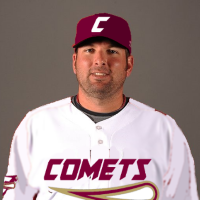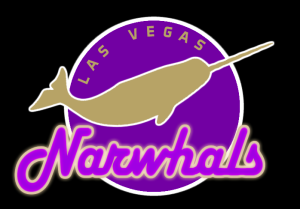 None of the four expansion teams that joined the Patriot League in 2016 seriously competed for a playoff spot, or even came particularly close to threatening the .500 mark. But each team, to varying degrees and in different ways, showed hope for the future. The Carolina Comets, alas, might have the longest road ahead of them. In the words of owner/GM Steven Roseman, “we had brief moments where we looked like a squad, just not enough to strike fear in anyone.”
None of the four expansion teams that joined the Patriot League in 2016 seriously competed for a playoff spot, or even came particularly close to threatening the .500 mark. But each team, to varying degrees and in different ways, showed hope for the future. The Carolina Comets, alas, might have the longest road ahead of them. In the words of owner/GM Steven Roseman, “we had brief moments where we looked like a squad, just not enough to strike fear in anyone.”
Start with the record: 46-104, worst in the league and only one game better than Salt Lake’s all-time worst performance from last season. As Roseman put it, “The season started and before I realized it my team was trying to dig out of an insurmountable hole.” The Comets spent the season getting “walloped in the chin by a number of teams.”
Take a look at the underlying numbers, which suggest that the team’s record was no surprise. Carolina underwhelmed on both sides of the ball. The Comets finished dead last in batting average (.236) and second-to-last in OPS (.713), while also bringing up the rear in ERA (5.78) and OPS allowed (.863). Carolina’s relievers managed to convert only 33% of their save opportunities, an appalling number given that no other team converted fewer than 57% of their chances.
The Comets disappointed on an individual level as well. At the season’s beginning, Roseman felt that his team had the talent to “compete for the pennant, or at least be competitive,” but that belief was undermined as the season went on. Presumed ace Randy Flats was a flop, going 6-13 with a 5.97 ERA. Hometown hero LF Stargell Jackson provided some sorely-needed speed, stealing 50 bases, but didn’t get on base often enough (hitting .252 with a .733 OPS). Only three pitchers on the squad finished with an ERA under 5.00, and only four hitters finished with an average over the .250 mark.
Arguably the best player associated with the Comets franchise is one who never played a game for them. One of Carolina’s top draft picks was left-handed starter Scott Green. But in a stunning move, the Comets shipped him to Knoxville just before the season for journeyman lefty Tom Trane and second-base prospect Danny Kurland.
The deal was a head-scratcher at the time, and only looked worse as the season went on. Green sparkled with Knoxville, contending for Rookie of the Year honors and helping the Smokies win their first league title. Meanwhile, Trane went 5-21 with a 7.06 ERA, while Kurland struggled to keep his average over the Mendoza Line and failed to nail down the starting job at second.
Then there’s the volatile presence of manager Taylor “Two-Buck” Ashy. Ashy is a disciple of Knoxville Smokies skipper Snuff Wallace; in his first season with Carolina, he tried to mimic Wallace’s brash and outspoken personality, but without the results to back it up. Ashy’s abrasive style reportedly led to numerous conflicts with his players. Two of the team’s best pitchers, starter Davey Skargard (2-7, 4.57 ERA) and reliever Avery Lavine (1-2, 3.60) finished out the season in the minors, reportedly after getting on the manager’s bad side. Although Roseman declined to comment on Ashy’s performance, he did say that the Comets had “no identity or vision.”
Despite all of that, there were some causes for optimism if you squinted hard enough. 1B Pete Shives, another high draft pick, flashed a brilliant glove and displayed real thump, leading the team with 39 homers. CF Joe Jones displayed some unexpected power as well, launching 35 round-trippers to make up for a less-than-sterling .251 average. Between those two and Jackson, the Comets have the core of a lineup with some promise, even if there are numerous holes, especially in the middle infield.
It’s harder to see the same hope among the pitching staff, but starters like Flats and Deke Slater (8-16, 5.75) are young enough to be viable bounce-back candidates. Right-hander Whitney Winslow (2-10, 1 save, 5.27 ERA) cycled through just about every possible role in the pen; he might improve if the team can settle on the best way to use him.
Roseman took primary responsibility for the team’s performance, acknowledging that “I didn’t do my homework” and “making critical mistakes was my undoing in the first year.” Looking toward next season, the owner said his focus is on “[h]aving a clear plan for the team and organization, following a consistent game plan from the draft throughout the season.”
Perhaps the key piece of the plan is the fate of the manager. Roseman didn’t commit on whether Ashy would return, but he did say that “a major adjustment in philosophy will be implemented.” Is Ashy capable of dialing back his cut-rate Snuff act for the sake of the team’s growth? Can he avoid alienating his players and wearing out his welcome in the clubhouse? Does he have the patience to oversee what is likely to be a long building process in Carolina? If the answer to those questions is “yes,” then Ashy might be the man to guide this club for the long haul. If the answer is “no,” however, Roseman might need to find a new skipper in order for the Comets to get better.








